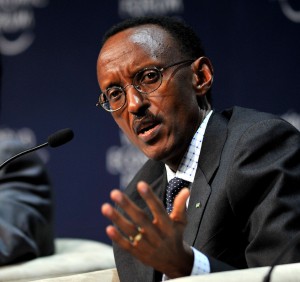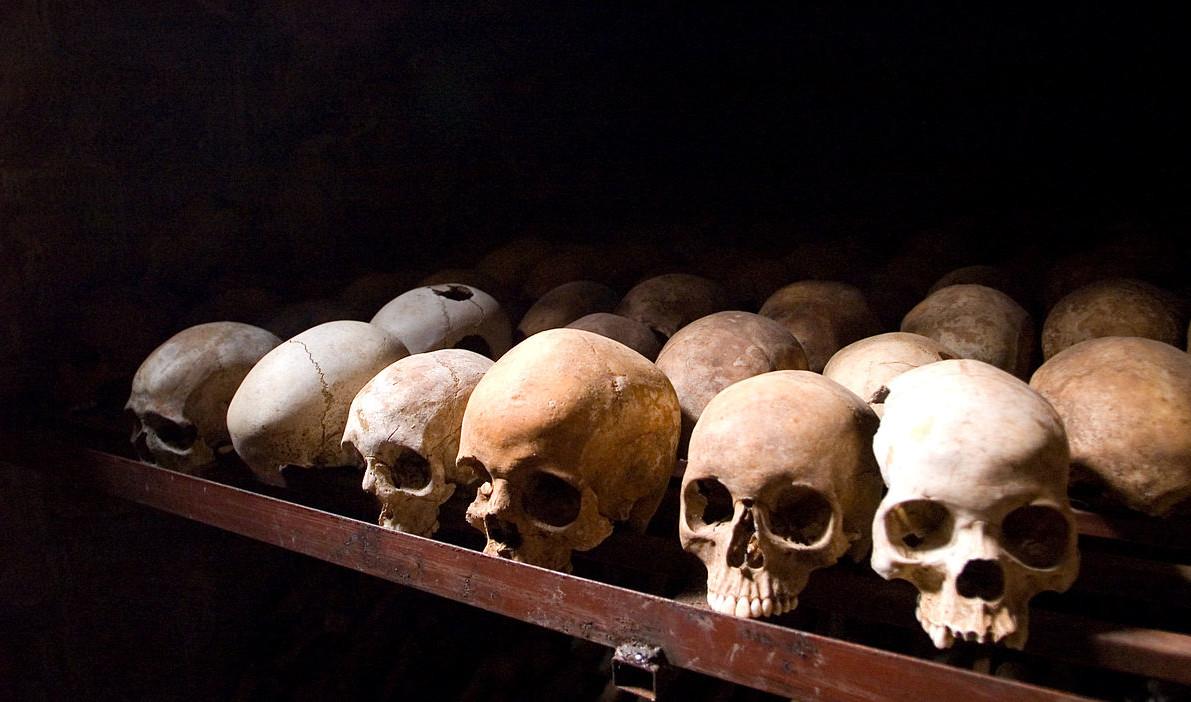“You cannot have reconciliation without real, true justice being done,” asserted Rwandan prosecutor Jean Bosco Mutangana. Mutangana is the head of the government’s international crimes unit, and tasked with convicting the Hutu perpetrators who brutally murdered 800,000 Rwandans. The notion of reconciliation and justice and their potential compatibility and conflict have been recurring themes in post-genocide Rwanda. In a Skypecast with Stephen Kinzer’s Rwanda Past and Present class at Brown, Rwandan President Paul Kagame insisted that there is “no conflict between rights and development. If Rwandans can overcome poverty and have security, this enables them to express themselves or their rights and defend them as never before.”

On the 7th of April 1994, ten years and three days ago, a plane carrying Rwandan Hutu president, Juvenal Habyarimana, and Burundi’s Hutu president, Cyprien Ntaryamina was shot down near the Kigali International Airport. The incident triggered the existing resentment between the Hutus and Tutsis, which had intensified post-World War 1 with Belgium’s divide and conquer policy. Within a matter of hours, the majority Hutu population began to persecute the Tutsi “cockroaches.” Neighbors attacked neighbors, teachers murdered their students and in mixed-ethnicity marriages husbands had their wives killed. The Hutus were overcome with a need for brutal vengeance facilitated by the colonially encouraged dehumanization of the Tutsi “other.” Rwanda’s predominantly Catholic population was unable to seek refuge in churches for even nuns and priests ordered killings.
Tension between the Tutsis and Hutus became most prominent post-World War I when “Rwanda was handed to the Belgians to manage.” According to President Kagame, “These so-called different groups [Hutus and Tutsis] had different occupations and Belgium analysed these differences and emphasized them.” Belgium’s divide and conquer policy used eugenics, a popular policy in the Nazi regime, to promote that larger skull size, greater height and light skin tones affirmed Tutsi superiority due to a perceived closer ancestry to Europeans, according to the Hamitic theory. In 1931, Belgium ordered identity cards distinguishing the two groups. In 1934, Belgium reinstated Germany’s previous rule that an individual qualifies as a Tutsi if he has more than ten cows, indicating and perpetuating economic superiority.
Belgium also decided to initiate coffee production on Hutu land under the corvée system: compulsory labor demanded by a lord or king. Hutus were subjected to ten lashes a day to ensure a solid work ethic, in case these ‘inferior’ people strayed from their assigned duties. By the time of Rwandan independence in 1962, the Hutus were a subjugated population, manipulated by both their fellow Rwandans and colonial powers. After World War II, however, in the interest of United Nations imposed “democracy,” Belgian elites and Tutsi King Mutara Rudahigwa included Hutus in political administration and abolished the age-old system of Ubuhake – a feudal class system that placed Hutus in the lowest rung of society. By 1954, King Rudahigwa insisted total Rwandan liberation from Belgium. In the struggle for independence, Hutu catechist Gregoire Kayibanda published the Hutu Manifesto – document that became the anachronistic ideological basis of Hutu power during the genocide 40 years later.
During the genocide, Rwanda received minimal foreign support as the international community refused a repeat of the 1993 American disaster in Somalia. According to Amnesty International, “the international community has collectively failed to act on the lessons of the Rwandan genocide” in light of the current crises in the Central African Republic and South Sudan. At the time, France, however, continued to deliver weapons to the incumbent Rwandan regime until July 1994 and allowed the perpetrators to retreat to what was then Zaire, taking the weapons with them. The Rwandan bitterness toward the French was highlighted in Kagame’s remark that “France uses the politics of a big power to create problems for Rwanda.” He repeated this sentiment at the 20th anniversary commemoration, highlighting France’s role in the genocide and causing France to cancel the French justice minister’s attendance of the commemoration proceedings. The inability to overlook colonial crimes against humanity while the world commemorates its mistakes underscores a critical question asked in an article by The New York Times: Is it possible to commemorate a world tragedy without opening old wounds? France and Belgium may be attempting to reconcile relations with Rwanda, yet their role in the alarmingly recent (I was born in 1994) genocide is undeniable.
In the last two decades, however, Rwanda has drawn both praise and criticism. According to Kagame, the government “tries to do more with less and create a safe and corruption free environment.” This very sentiment, however, has been challenged by international allegations of corruption in the Kagame government itself. Kagame has been accused of “ruling like a strongman and curbing freedoms.” Furthermore, the United States and other Western powers have curbed developmental aid over Rwanda’s recent support for the rebels in Congo. Referred to by NYT op-ed contributor Marc Sommers as “The Darling Dictator of the Day,” Kagame barred most opposing political parties and closed down newspapers in the lead up to the 2010 presidential elections. Kagame, whether by fair means or not, garnered 93 percent of the vote.
Kagame’s corruption, however, is difficult to gauge as his agenda has actively promoted reconciliation between the Hutus and Tutsis along with significant economic development, thus reestablishing the parallel relationship between rights and development. The self-styled “Switzerland of Africa” has a surging economy, a declining poverty level and high life expectancy. The World Bank ranks Rwanda as eighth easiest place to start a new business, while Costco and Starbucks now buy approximately a quarter of Rwanda’s coffee crop. Rwanda also places significant emphasis on women’s rights, highlighted by President Kagame’s remarks that women’s rights are a given and that women play a critical role in the economic development of Rwanda.
Despite the reconciliation efforts, centuries of segregation and oppression based on inherently racist paradigms are difficult to overcome in a mere two decades. Kagame’s government has outlawed any speech that creates ethnic tension and there are countless examples of perpetrators and victims coexisting peacefully. According to Edouard Bamporiki, a poet, filmmaker and member of the Rwandan parliament, “We still have some barriers. Many Hutu families are still in the process of removing shame. And there is pain and anger in the families of the Tutsis. It’s not easy to forgive.” Efforts to bring perpetrators to justice continue in Rwanda. “It’s been really a huge failure, mainly for the survivors’ community in Rwanda, to see that after 20 years there are still génocidaires around the world when the court is there for the last 19 years.” Honoré Gatera, manager of the memorial center, however, feels that “Justice hasn’t been adequate, especially at the international level.” This sentiment was echoed in Kagame’s Skypecast as he commented on the fact that individual perpetrators are being protected by the French government, thus undermining Rwanda’s effort to achieve justice.
The longing for justice, underscored by feelings of guilt, resentment and pain, is a universal desire in Rwandan society. Take the case of Egide Nkurange. His Hutu neighbors slaughtered his mother, elder brother, six nieces and other relatives. As a result, he refuses to “sit down and have a Coke with [his] family’s killers.” To him, “Reconciliation comes after justice and we still need justice.”
